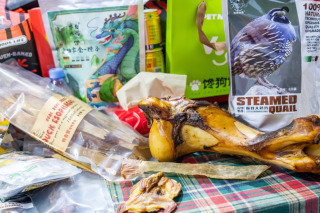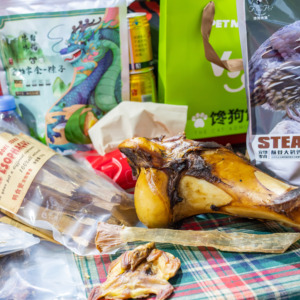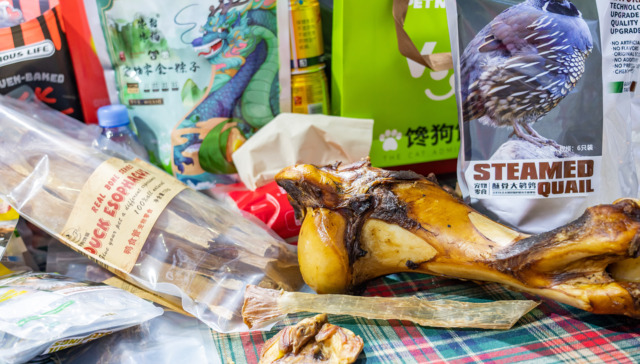by Li Ye
Chinese pet food brand Honest Bite has opened its first self-owned factory in Dezhou, Shandong, marking a step up in its manufacturing capabilities. The new facility produces its premium baked “non-irradiated” line, priced at 169 yuan (US$23) for 1.8kg and 412 yuan (US$57) for 5.4kg—among the brand’s highest.
The factory includes a fully automated baked food line and has already begun contract manufacturing for both domestic and overseas brands.
Honest Bite, under Shanghai Jianmo Biotech and founded in 2020, offers dry food, wet food and treats. It claims sales have grown 166-fold in recent years, reaching over 1 billion yuan (US$139 million) in 2023.
The growth reflects both a low base and rising consumer acceptance of domestic brands. China had over 105 million pet-owning households by the end of 2024, according to the 2025 China Pet Industry White Paper. Local names are climbing the ranks—seven of the top 10 pet food companies in 2022 were Chinese, per Euromonitor.
Honest Bite, Purich, Alfie & Buddy, NetEase Selected, and Rosy Fresh now appear regularly in online discussions. Still, global giants Mars and Nestlé held two of the top three spots by revenue.

One barrier for local brands remains consumer trust. The absence of mandatory national standards around pet food nutrition and safety has historically left room for skepticism. That gap, however, is now being addressed as domestic brands make transparency and product traceability central to their strategy.
Industry insiders say Chinese pet food production is shifting from outsourced, low-margin operations to more integrated and quality-focused models. Some brands now disclose manufacturing partners, publish testing results, and even list ingredient sources—including the farms or fisheries where proteins are sourced.
More brands are also building their own factories—Honest Bite joins others like Gaoyea, Alfie & Buddy, Nourse, Pat’, and NetEase Tiancheng in ramping up in-house production. This allows for faster R&D and tighter control over quality.“Contract manufacturing slows innovation and makes it easier for competitors to copy,” Feng Huaqing, VP at Ries Consulting China, told Jiemian News.
Some brands are also carving out niches. Honest Bite, for example, built its reputation with kitten-specific products. “The market doesn’t yet segment by pet age, but that’s an opportunity for smaller brands,” Feng added.
Now, U.S. tariff hikes may give domestic brands a further boost. Concerns over import prices are spreading online. A widely shared notice suggested Nature's Variety would raise prices by 30 yuan (US$4) for its 4.5kg high-protein cat food, though the brand hasn’t confirmed it.
Consumers have also noted higher prices for Orijen and Acana products on e-commerce platforms. Official explanations are lacking, but sentiment is shifting. “European brands are getting harder to afford,” one user wrote. “I’ve started looking at local alternatives.”
Some U.S. brands are seeking to reassure customers. Halo Pets said its cross-border inventory is not subject to the latest tariffs. Taste of the Wild similarly announced it has no immediate plans to raise prices, as long as duty-free e-commerce channels remain available.
Still, if tariffs persist, importers face growing pressure to manage inventory, build cross-border infrastructure or localize production.
Price gaps are widening. A 5.4kg bag of Orijen’s “Six Fish” sells for 667 yuan (US$93) on e-commerce platforms, while a similar Purich product costs less than a third of that.
Honest Bite plans to further expand with new facilities for freeze-dried and wet food this year. And as online growth slows, brands are also making a push into offline channels. Honest Bite began building its physical retail network in 2023, and Alfie & Buddy has announced plans to open its first brick-and-mortar store in Shanghai.





